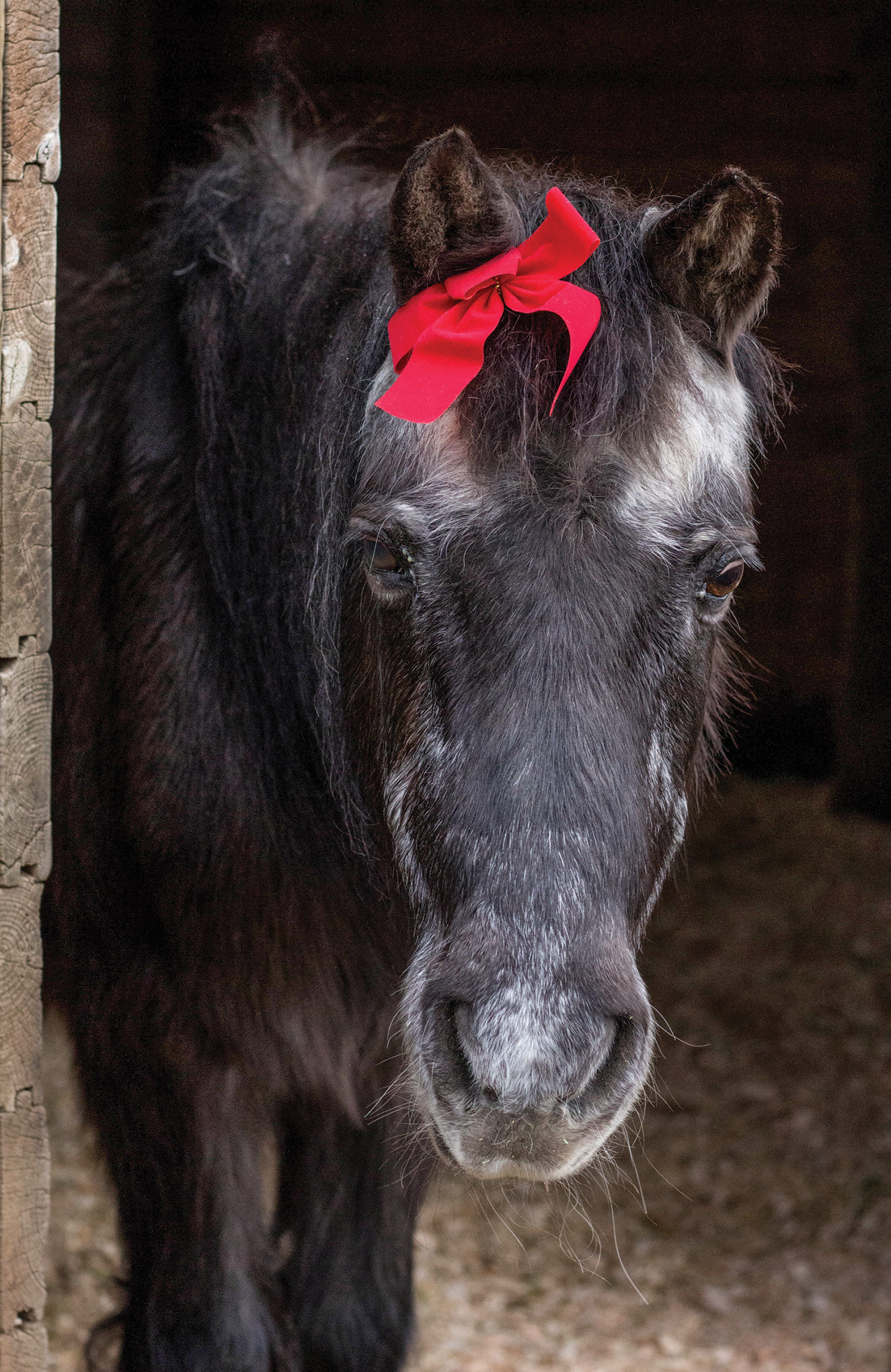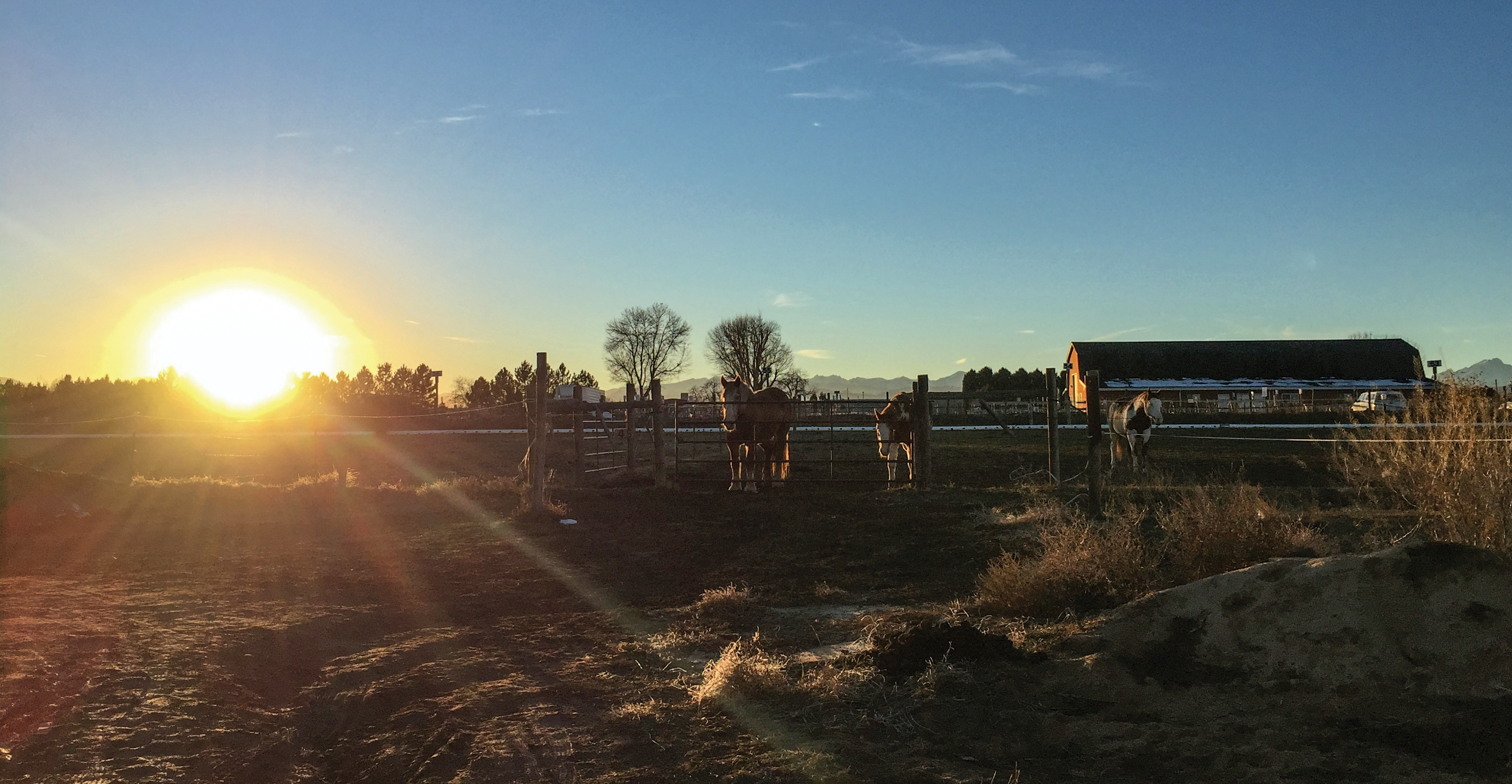“Cruzer is the best horse I’ve ever had,” my client explains. “He’s sound, reliable, and still winning at every show. He’ll be 18 next year, though, so it’s time for retirement. Sure gonna miss him….”
[READ: Ride Smart and Keep Him Going Longer]
Wait, I’m thinking, what? Just because he’s getting older doesn’t mean it’s time to quit. In fact, in recent years we’ve seen 21-year-old horses compete successfully in World Cup jumping. Besides, why not consider letting the horse step down to a less demanding job rather than retiring him completely?
Then there’s the other type of owner.
“There’s something wrong with my horse,” she’ll say. “He’s only 24, and he’s having a hard time keeping up with my friends’ horses on trail rides. I don’t understand it. Is there anything we can give him to up his energy?”
“Hmmmmm,” I say. “Twenty-four. Maybe he’s just feeling his age?” After all, given that every year of a horse’s life translates into roughly 3 or 4 human years, that means your 24-year-old horse is akin to a 72- to 96-year-old human. Imagine riding your 80-year-old grandpa down the trail. Chances are, even if your 20-something horse is strong and healthy, he’s likely to have slowed down a bit.
So, how can you tell when your senior horse is ready to scale back? Just as with people, that question can’t be answered by considering age alone. Here, I’ll explain what happens as your horse ages. Then I’ll give you five important questions to ponder when you’re considering moderating your horse’s work demands—or retiring him altogether.
[READ: Learn Which Leg is Lame]
After all, he depends on you to make decisions about his health and happiness as he grows older.
Aging Basics
No matter how hard we try, none of us can escape the effects of Father Time, and your horse is no exception. Unavoidable physiological and structural changes occur with advancing years, beginning with his teeth.
Your horse’s teeth have a “reserve crown” beneath the gum line; this reserve slowly erupts to make up for tooth surfaces worn away when he grinds his food. As he grows older, he uses up that reserve crown until there’s nothing left; eventually, he’s left with mere nubs.
As a result, he’ll have a harder time chewing his feed effectively. The larger particle size of food reaching his stomach will make digestion difficult on his intestinal tract, causing him to lose weight.
And compromised chewing isn’t the only factor stressing his digestive system. Chronic damage from internal parasites combined with plain old wear and tear makes his ability to absorb nutrients (proteins, vitamins, minerals) less efficient.
His difficulty digesting proteins can have widespread effects—most notably muscle atrophy. His back may drop, and he’ll lose strength. He may also develop chronic diarrhea.
Wear and tear on your horse’s joints and soft tissues combined with the cumulative effects of old injuries can lead to chronic lameness. If your horse is uncomfortable, he’s likely to move around less, which can further contribute to loss of strength and condition.
And if he’s been administered a lot of medications (such as non-steroidal anti-inflammatories—NSAIDs) over the years to help manage musculoskeletal pain, he may even experience kidney compromise or other organ damage.

Finally, your horse’s immune system becomes less effective as he ages, making him more prone to infectious diseases or heavy parasite loads. He’s also at increased risk of developing endocrine disorders (such as Cushing’s disease or insulin resistance) that can further hasten the aging process.
It’s estimated that as many as 30 percent of horses over the age of 20 have Cushing’s disease.
So how old is old? Most experts agree a horse can be considered geriatric when he reaches 18 to 20 years of age. The bigger question, though, is how old is too old? And that requires a multifaceted answer.
Is My Horse Too Old To…?
When it comes to making “too old?” decisions, consider each horse and his circumstances individually. The following five questions will help you determine what your geriatric horse can still do.
Question #1: Performance still up to par? Is your once rock-solid reining horse suddenly late behind in his lead changes? Has your old trail horse begun having trouble keeping up with others?
A veterinary examination will help you determine if there’s an underlying lameness or other health condition that could be contributing to your horse’s sudden decline in performance. But if your vet finds nothing wrong it may be time to make a change.
Example: Dasher is a 20-year-old Quarter Horse gelding that’s been a top barrel racer for years. He even qualified and competed at the NFR several times. This past season, though, he consistently added a second to his time. He isn’t lame, and lab work (including a test for Cushing’s disease) was normal.
Is he too old to be a barrel horse? Of course not! But he may be too old to compete at the highest level. It’s probably time to reduce his work demands as he begins to feel his age. This previously high-level performer could have a wonderful second career teaching a youth rider or older amateur.
Question #2: Is he lame? Has your horse been diagnosed with navicular-bone degeneration or a chronic high-suspensory-ligament injury? If so, you might’ve been successfully managing his condition for years with medications, joint injections, or shockwave therapy. But if his lameness has progressed to the point where it requires more frequent treatment and constant medication, and he’s reached his golden years, it might be time to call it quits.
The same holds true for the reliable old performer that suffers a severe, acute injury that’s going to require aggressive treatment and months of rehabilitation to heal.
Example: Trooper is a 22-year-old roping horse that suddenly came up extremely lame in one hind leg. The diagnosis was severe torn meniscus in his stifle—an injury likely to take a year or more to heal, even with aggressive treatment.
Is he too old to plan on complete recovery and a return to work? Probably. This old gentleman has earned the opportunity to enjoy his retirement without the pressure of a prolonged plan to get him back to work.
Question #3: Maintaining weight and condition? Does your 20-year-old horse look shiny, fat, and happy? Or is he starting to look a bit scrawny and sway-backed—even after you’ve increased his feed and changed him over to a senior diet?
When you haul long distances to events, does he lose weight easily? If so, does he bounce right back or take a couple of weeks before he seems normal again?
If your horse is having trouble maintaining his weight, it might be best to reduce his energy requirements by cutting back his work demands.
Example: Cedar is a 22-year-old Arabian gelding with major dental issues. He recently developed chronic diarrhea and, even on a senior-formulated diet, it’s still easy to see his ribs. He completed a number of 100-mile endurance races when he was younger, and in recent years he’s dropped back to 50-mile, then 25-mile rides.
Is he too old to continue competing as an endurance horse? To be fair, yes. If he’s having trouble maintaining his weight, expending the amount of energy required to compete in endurance is probably not in his best interest—even at the 25-mile level. Perhaps it’s Cedar’s time to enjoy a life of light trail riding.
Question #4: Any other health concerns? Has your horse been diagnosed with a chronic disorder, such as kidney failure or Cushing’s disease? Chronic health issues can hasten the aging process. And, depending on the disease, there may be specific activities you should avoid so you can help your horse stay as healthy as possible.
Example: Sinbad is an 18-year-old Thoroughbred gelding recently diagnosed with chronic kidney failure. He drinks a lot of water and doesn’t maintain his weight well. His vet has advised that keeping him well-hydrated is probably the most important consideration in protecting Sinbad’s health. Given that, can the gelding still be used in the lesson program at his barn?
Probably not—unless he’s used extremely lightly. With his condition, it’s best if Sinbad avoids fluid loss through sweat. Not only that, he needs all of the calories he consumes to help maintain his weight. With a chronic disease complicating his aging process, Sinbad should ideally be retired from work.
Question #5: Happy to see you arrive at the barn? Perhaps the most important question of all is whether your horse seems happy. Does he greet you with a nicker when you approach his stall, or does he pin his ears and turn away? Does he still seem to enjoy his work, or does he swish his tail and resist your commands?
If your horse is happy and enjoys his work, chances are he’s not too old to continue. But if he’s grouchy, sore, and/or sour, it might be time to quit.
Example: Suzy is a 37-year-old pony used as a walk/trot mount in a therapeutic riding program. She’s in good shape and although she was diagnosed with Cushing’s disease 20 years ago, it’s well controlled with medication. She greets all her young riders with pricked ears and a nicker, and trots around the arena happily with any one of them aboard.
Is she too old to continue doing her job? Absolutely not! Because “how old is too old” depends on so much more than years.

Is My Older Mare Too Old to Breed?
The American Quarter Horse Association has records of a 42-year-old mare that successfully gave birth. But is that something you should expect? Definitely not.
As a rule of thumb, a mare’s fertility begins to decline between the ages of 15 and 20 due to various factors including poor egg quality, irregular heat cycles, and compromised uterine health. As with everything else, the “how old is too old” question varies with the individual mare.
If your mare has previously given birth to healthy foals, she’s more likely to successfully conceive and carry a foal to term than is a maiden (first-time) mare. (And, of course, your mare would need to be in excellent overall health and condition.)
Before you decide to breed your older mare, consider two factors carefully. First, it may be more expensive to successfully breed an older mare than a younger one, as she’s likely to require more intensive management and may need to be bred on multiple cycles before she conceives.
Second, she’s at greater risk of complications during pregnancy and foaling—including a potentially fatal rupture of her uterine artery, an outcome more common in older foaling mares.

